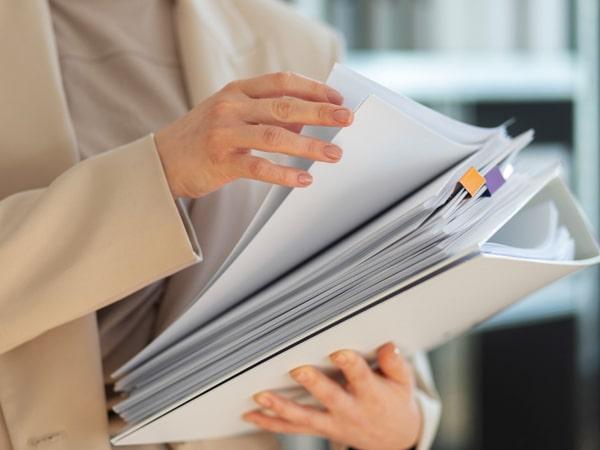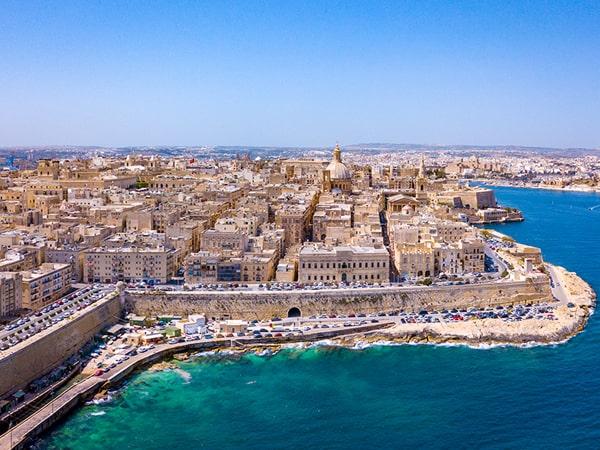Malta Company Formation
They say that Malta is an island that conquers at first sight! Besides the fact that the summer in Malta lasts longer than the usual three months, Malta is one of the best options for doing business – registering a company.
Benefits of setting up a company in Malta
English-speaking business environment
Strategic location
Membership in the EU
Visa-free zone
Skilled workforce
Favourable tax treatment
The stability and reliability of the political and economic systems of the country
Investment incentives for business development
Access to financial services
Reliable legal framework (including the protection of intellectual property)
Ease of setting up a company
Quickly select a jurisdiction and register your company anywhere in the world online
Types of companies that can be registered in Malta
1. Private Limited Company (LLC)

2. Public Limited Company (Plc.)
3. Sole Proprietor
4. General partnership:
5. Limited partnership
6. Branch
7. Representation
Requirements for company formation in Malta
Determine the type of activity
Check and reserve a name Maltese company
Identify and appoint company managers
Choose an office for Malta company formations
Authorised capital according to requirements
Founding documents
Taxation and financial reports
Annual general meeting
VAT registration
Hired employees
Licenses and permits
Documents required for company registration in Malta
- Memorandum and Articles of Association. The most important document that essentially describes the goals of the company and contains information about the address of the company, directors, founders, the amount of the authorized capital, and more;
- Identity documents: valid passports and proof of address for all directors and shareholders of the future Maltese company.

- The address of the registered office, which will be indicated as official;
- Information about the authorized capital. Based on the type of legal entity you have chosen, the size of the authorized capital, the currency in which it will be issued, and the number of shares will be determined;
- Information about shareholders and directors. This should include information about directors, shareholders with their personal data, which is mainly contained in the passport (identity document);
- Selecting a company name: Before proceeding with the registration process, you must reserve a company name.
- Appointment of company secretary: Details of the appointed company secretary. This person must be a resident of Malta.
- Declaration of conformity. This declaration must be signed by the founders of the company. It states that the company complies with all legal requirements.
- Bank reference letter: Some banks may require this letter to open a corporate bank account.
Before registering companies, carefully study the legislation, or ask specialists who know all the intricacies of Malta company formation to help you with business registration.
Services offered by our company
Procedure of company incorporation in Malta
1. Selecting the type of company
2. Company Name Selection
3. Memorandum and Articles of Association
4. Appoint directors and corporate secretary, and select shareholders
5. Share capital
6. Registered office
7. Company Registration
8. Tax Registration and VAT
9. Social Security and Employment Registration
10. Licenses and Permits

Taxes in Malta
- Personal income tax. Malta uses a progressive tax system for individuals. The tax rates for resident individuals are as follows:
- up to 9,100 euros: 0%
- from EUR 9,101 to EUR 14,500: 15%
- from EUR 14,501 to EUR 19,500: 25%
- from €19,501 to €60,000: 25%
- over 60,000 euros: 35%
Non-resident individuals pay a flat tax rate of 15% on income earned in Malta. However, certain categories of non-resident individuals may be eligible for tax rebates or exemptions.
- Corporate tax. Under the Income Tax Act, Maltese companies are subject to corporation tax on their worldwide income. Foreign companies that do business in Malta will be subject to corporation tax solely on local income. The taxable income of corporations in Malta includes in particular: business activities, dividends, interests, royalties, and incomes made from real estate rental or selling other sources of income. The standard corporate tax rate in Malta is 35%. Companies registered in Malta may be eligible for a 6/7 corporate tax refund. The refund is as follows: if the company pays a corporate tax of 35%, then the shareholders can claim 6/7 of the tax. All of the above actions result in an effective tax rate of 5%. Although, there are exceptions to this rule too. Maltese holding companies can receive a full corporate tax refund under the participation exemption, provided that such legal entities benefit from participation in a company registered outside of Malta. It should be emphasized that Maltese holding companies may also choose to pay corporation tax on certain income. In turn, shareholders after the distribution of dividends may demand a refund of this tax. Please note that when paying corporation tax in Malta, firms must allocate their profits to one of the following accounts:
- Maltese tax bill,
- foreign income account,
- tax-free account,
- final tax accounting, accounting for real estate.
- Taxation of royalties. If a Maltese company derives royalty income from qualified intellectual property rights, then any income arising from those rights is exempt from corporation tax. It is worth noting that the exemption also applies to qualifying patents wherever they are registered, even if they are developed and registered and held outside Malta.
- Value Added Tax (VAT). Malta applies VAT to most goods and services. The standard VAT rate is 18%. But there are a number of certain goods and services that are subject to reduced rates of 7%, 5% and even 0%.
- Capital Gains Tax. Taxed in Malta at progressive income tax rates. However, there are some exceptions for certain types of capital gains (for example, profit from the sale of the main residence).
- Property Tax: Malta levies a property tax known as the ‘Transfer Tax’ or ‘Stamp Duty’ on the transfer of immovable property.
- Social Security Contributions. Both employees and employers are required to pay contributions to social security schemes in Malta. Thus, the employee’s contribution to social security is about 10% of his gross salary, and the employer’s contribution is about 10.3% of the employee’s gross salary.
- “IP-Box” regime. Mankind does not stand still and tries in every possible way to develop new preferential regimes or use existing instruments for such benefits. So, one of the latest trends that is used in tax optimization is the “Intellectual Property Box” or “IP-Box”. The essence of this regime is both to reduce the effective interest rate on income from the use of intellectual property and to release part of income from taxation.IP Box mode appeared in Malta only in August 2019. And accordingly applies to income received from 2019 and later. The effective rate under IP-Box in Malta is zero percent.
- Taxation of royalties. If a Maltese company derives royalty income from qualified intellectual property rights, then any income arising from those rights is exempt from corporation tax. It is worth noting that the exemption also applies to qualifying patents wherever they are registered, even if they are developed and registered and held outside Malta. Royalties earned in Malta by residents of Malta are generally subject to standard progressive personal income tax rates (between 0% and 35%). The tax rate applied will be affected by the total amount of income received. In turn, royalties received in Malta by non-residents may be subject to withholding tax. The standard withholding tax rate on royalties paid to non-residents is 10%. However, this rate can also be reduced (or even eliminated if Malta has a double tax treaty with the recipient’s country of residence).
- Dividends. If dividends are received by a Maltese company, then as a general rule, dividends are considered part of the taxable income of such a legal entity. However, dividends received from a “participating holding company” may be exempt from Maltese corporate income tax under the participation exemption provisions of the Income Tax Act. This legal condition is another big “bonus” part of the attractiveness of Malta’s tax system when considering the country of company registration.
- Other taxes. The list of taxes and duties in Malta is not exhaustive and may vary depending on the law.
- Also, don’t forget about double tax treaties. This is a great legal opportunity for companies to avoid paying for the same product twice.
Our awards





FAQ
How much does it cost to open a company in Malta?
The cost of Malta company formation depends on several factors (for example, the type of company, the size of the authorized capital, additional licenses or the involvement of Malta company formation agents). Thus, the cost of registering a company in Malta roughly includes the following costs:
- Registration fees: The basic cost of registering a company in the Maltese Business Register (MBR) is from 245 to 1750 euros, depending on the type of company structure you choose.
- Notarial and legal services. It is possible that you will have to use the services of a notary and/or a lawyer to prepare and notarize the necessary documents. The cost of services of such specialists is from 200 to 500 euros.
- Share capital. The minimum authorised capital depends on the type of company. You need to focus on amounts from 1,165 euros, depending on the type of company.
- Corporate Services: If you choose to work with an intermediary to handle the registration process, expect additional fees. The cost of the services of such specialists ranges from hundreds to several thousand euros.
- Annual fees: company registration in Malta is not only the cost of registration itself. It is also an annual maintenance fee to keep the company active and compliant.
- Additional licences and permissions. Depending on the nature of your business, you may need additional licences and permits. Their cost must be specified based on the type of activity that is subject to licensing.
The above figures are approximate. Actual costs may change over time: the cost of services, and legal requirements change. There is no doubt that company registration in Malta requires financial investments. And therefore, even before the start of the requirement, carefully study the legislation to avoid unnecessary expenses.
Can a non resident set up a company in Malta?
How to register a Ltd company in Malta?
A Limited Liability Company (Ltd) in Malta is the most popular type of legal entity. When you set up a company in Malta in the type of Ltd, you must perform a number of actions, namely:
- choose a unique company name;
- prepare the Memorandum and Articles of Association (M&AA);
- choose a registered office and a resident agent: the company must have a registered office in Malta for official correspondence. In addition, a resident agent must be appointed to represent the company locally;
- Determine the size of the authorized capital for Malta company formation;
- appoint a director and secretary of the company;
- to register a company by submitting all necessary documents to the Register of Enterprises of Malta for company registration;
- register with the tax authorities and register VAT (if necessary). After registering a company, you must register for tax purposes with the tax authorities in Malta;
- open a bank account;
- register employment with the tax and social security authorities of all employees who will be involved in your business;
It is extremely important to comply with all legal requirements and rules in the registration process in a timely and correct manner. Company registration in Malta in the form of an LLC will be carried out quickly and in accordance with the law if you involve specialists as legal advisers on the issue of Malta company incorporation.
What is the minimum capital for a company in Malta?
How long does it take to set up a company in Malta?
Can I open a bank account in Malta for my company?
Are there any specific industry regulations or licenses required for certain business activities in Malta?
Yes, specific industry regulations and licenses are required for certain activities in Malta. Licensing and regulatory requirements vary depending on the nature of the business and industry, as follows:
- Online gaming, casino and sports betting companies must obtain licenses from the Malta Gaming Authority (MGA) in order to operate legally;
- financial services firms such as banking, insurance, investment services and electronic money institutions are regulated by the Malta Financial Services Authority (MFSA);
- A business that is related to telecommunications services requires a license from the Malta Communications Authority (MCA);
- Businesses operating in the aviation sector may require licenses from the Civil Aviation Authority;
These are just a few examples of industries where a license as a document for the legal implementation of activities is essential. Therefore, before starting the Malta company formation, carefully read the latest legal requirements.
What areas can I open a small business in Malta?
Is Malta offshore?
What are the restrictions on the company name?
In Malta, there are certain restrictions regarding the future name of a business. Here are some of the key restrictions on company names in Malta:
- Similar Names: The name you choose for your company must not be identical or too similar to the name of an existing company in Malta. The name must be unique and associated with consumers in the future only with your company;
- Forbidden words: Certain words or phrases are considered confidential. In order to use them, you need to obtain a separate permit. For example, we are talking about terms that are related to banking or insurance business, pharmaceuticals;
- offensive names. it is forbidden to use in the name of companies offensive, obscene words or words that promote illegal activities;
- Misleading Names: the name you choose for your future business should not be misleading. Also, it should not imply business activities that the company does not engage in;
- Royal Family or Government Name: if you wish to use the name of the British Royal Family or any other name, you must obtain prior approval.
Before registering a company name, it is recommended to search for the name in the Malta Business Registry. This will allow you to check its availability and make sure that the proposed name complies with all the rules. In turn, the name reservation process allows you to confirm the availability of the name before proceeding with the company registration.
Which authority registers companies in Malta?
What VAT rate applies in Malta?
The standard Value added tax (VAT) rate in Malta is 18%. This is the rate that applies to most goods and services in the country.
However, there are also reduced VAT rates that apply to certain goods and services. Reduced Rates:
- reduced rate (7%), for example, accommodation in hotels, guest houses and self-service establishments, medical equipment, books and newspapers;
- an extra reduced rate (5%), applied to a limited number of essential goods, such as some medical equipment for the disabled and some types of books, including school textbooks;
- zero rate (0%), for example, the export of goods outside the European Union, certain transactions within the EU, as well as certain food and beverages.
It is important to emphasize that VAT rates and rules may change due to updates to the tax system or changes in government policy. Before Malta company formation, you should familiarize yourself with the legal requirements and taxation of Malta.




































